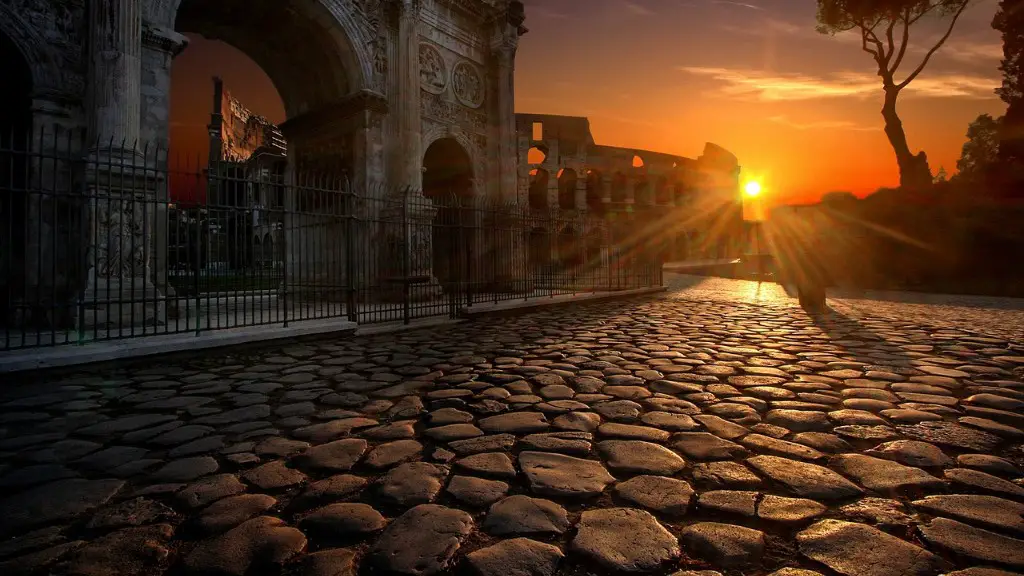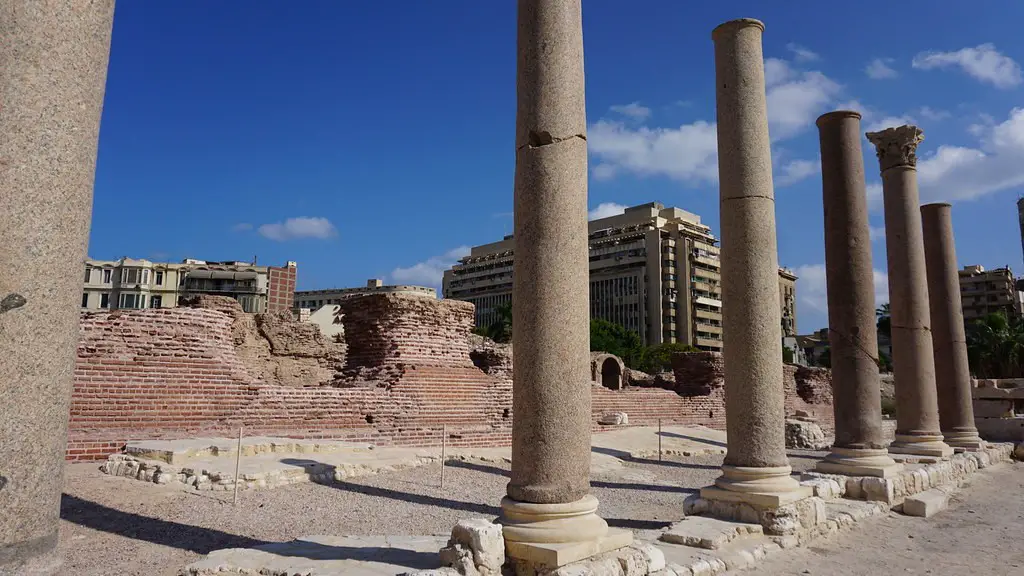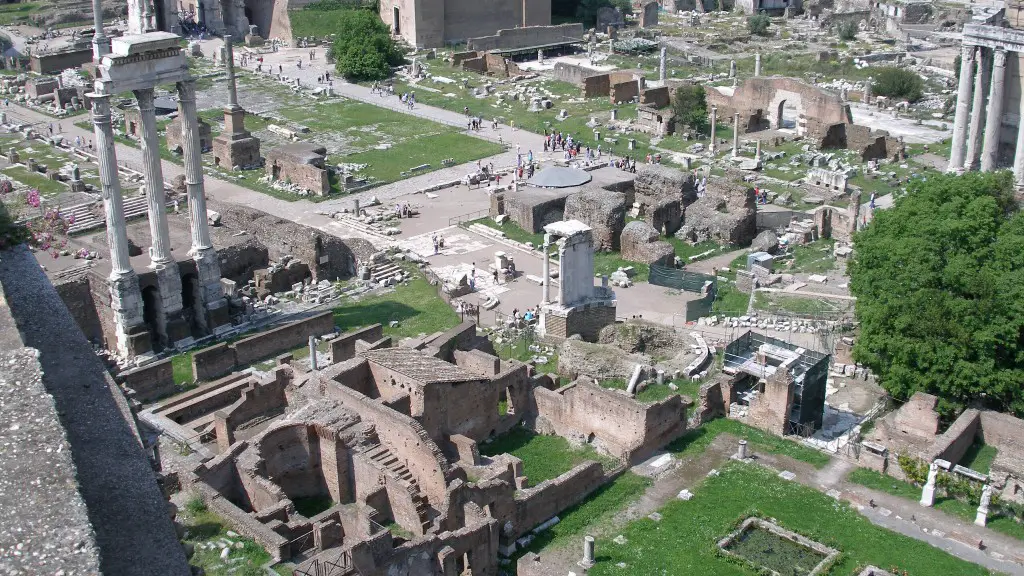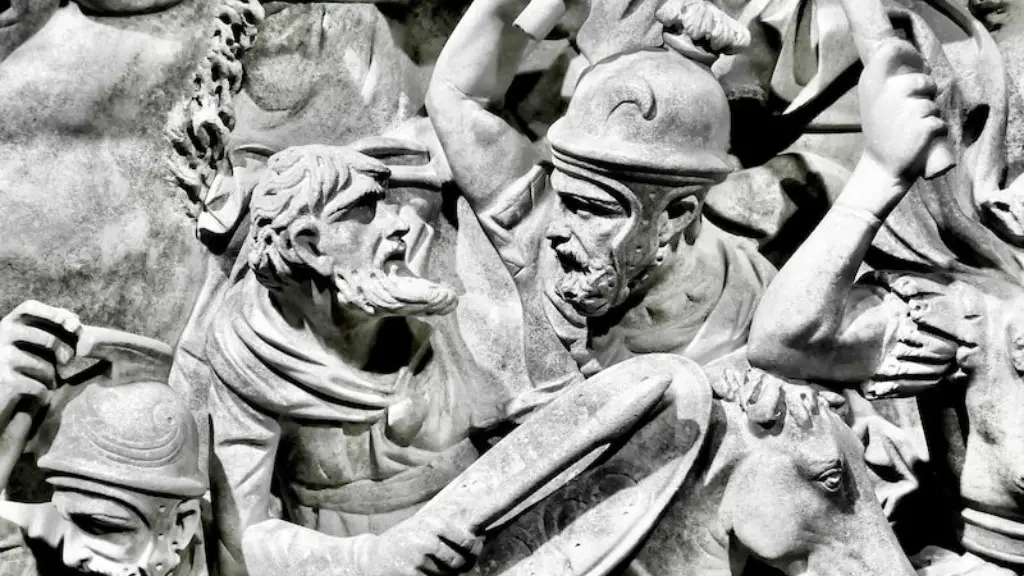The ancient Romans were a superstitious people who believed strongly in the power of omens. They believed that the gods could communicate through omens, and that they could warn or guide humans through them. As such, the Romans paid close attention to the omens they received, and interpreted them very carefully.
The stars were also of great importance to the ancient Romans. They believed that the stars were the gods’ way of sending messages to humans. The positions of the stars were studied carefully in order to try and understand what they meant.
The ancient Romans viewed stars and omens as being interconnected. They believed that the stars could be used to predict the future and that certain omens could be used to interpret the will of the gods.
How did the Romans feel about omens?
An omen is a sign that is believed to foretell the future. Ancient Romans took omens very seriously, and they believed that they could be used to predict all sorts of future events, both good and bad. While an omen was not considered to be as important as a prodigium (a sign of an impending disaster), it was still considered to be very important to the person who saw or heard it.
The Romans were very keen on astronomy and believed that the heavens were the gateway to the gods. They named the planets and stars after Roman gods to show how important they thought astronomy was.
What did the Romans think about astrology
The belief in astrology was very strong during the Roman Empire. Many of the emperors used astrology to justify their rule. Augustus, the first emperor, used his sign (Capricorn) on his coins and claimed that his elevation was foretold by his horoscope. This belief in astrology continued throughout the empire and was even used by some emperors to make decisions about when to go to war or whom to marry.
Superstitions were a perfectly natural part of the relationship between gods and men to the Romans. The Roman habit of interpreting natural phenomena as signs from the beyond stemmed from the Etruscans. The Etruscans, who developed reading omens and auspices into a form of science, knew different means of divination.
Did Romans do astrology?
Astrology was a central feature of Greek and Roman culture. It was used to make predictions about future events, and to make decisions about important matters. A knowledge of astrology’s claims, practices, and world view is essential for a full understanding of religion, politics, and science in the Greek and Roman worlds.
1. Carrying a bride over the threshold: It was believed that if a groom carried his bride over the threshold of their new home, it would protect her from evil spirits.
2. Augury: This was the practice of reading omens in the entrails of sacrificed animals. It was thought that the gods would communicate through these omens.
3. Haruspicy: This was similar to augury, but instead of animal entrails, the haruspex would read omens in the patterns of a person’s liver.
4. The Vestal Virgins: These were a group of priestesses who tended the goddess Vesta’s temple. They were required to remain celibate for 30 years, and if they broke their vow, they were buried alive.
5. The left hand: It was considered unlucky to use your left hand for eating or shaking hands. This is because the left hand was associated with the evil eye.
6. Spells, witches, curses and miracles: These were all things that were believed to be beyond the natural world and were therefore considered very dangerous.
7. The city limits: It was believed that the city limits were protected by magic and that crossing them
Who did the Romans fear the most?
The Huns were a group of people who lived in Central Asia and who were known for their fighting prowess. They were invited by the Roman Emperor to come and fight against other groups who were invading the Roman Empire. The Huns were able to defeat these other groups and become a major power in the Roman Empire. However, their time in the empire was short-lived as they eventually fell to other invading groups.
The augur was an important figure in Ancient Rome, responsible for observing and interpreting the signs (auspices) sent by the gods. This was used to help make decisions about proposed undertakings, and the augur’s role was vital in ensuring that the gods were consulted before undertaking any major actions.
What was the ancient belief about stars
In ancient times, the northern circumpolar stars were associated with darkness, death and the underworld of the dead. For the Aztecs, the northern stars were associated with Tezcatlipoca, the god of death. In Peking, China, there was a shrine devoted to the North Star deity.
The light and darkness were always seen as symbols of good and evil. In all ancient languages, the symbol for God was always a star. Therefore, people have always looked up at the stars with awe. They were seen as the home of the blessed and were worshipped as divine guardians.
What did the ancients believe the stars were?
The stars have always been a source of wonder and fascination for humans and the Greeks were no exception. They believed that the stars were the homes of bright spirits who once had lived on Earth. In fact, they often spoke as if the stars were the spirits themselves. In the northern sky were seven bright stars that have been admired for thousands of years. These stars were known as the Seven Sisters and the Greeks believed that they were particularly special. They thought that these stars were the spirits of seven women who had been turned into stars after they died.
The Catechism of the Catholic Church teaches that divination is incompatible with modern Catholic beliefs such as free will. All forms of divination, including predictive astrology, are considered to be superstitious and contrary to the teachings of the Church.
Can we believe in astrology in Bible
The Bible does expressly forbid people from trusting astrology, despite this, the western world has many astrologers. They claim that the Bible has been misconstrued and that it warns about specific people’s sins. When compared to a place like India, Western countries have far fewer astrologers.
The ancient Romans believed that the planets were gods and goddesses. They named the planets after these deities. For example, Mars was the god of war and Venus the goddess of love.
What is the importance of omens?
There are many different types of omens, from natural phenomena like comets and eclipses to more mundane things like a black cat crossing your path. Many cultures have Historically, people have interpreted omens in a variety of ways, often depending on their religious beliefs.
Some omens are considered good, like a rainbow after a storm, while others are bad, like a bird flying into a window. Many people still believe in the power of omens today, even if they don’t necessarily believe that they’re messages from the gods. Whether you believe in them or not, omens can be interesting and fun to think about.
The Romans believed that the tinkling sound of a tintinnabulum would ward off evil spirits. This type of charm was usually made of bronze in the shape of a wind chime and hung in doorways or windows. The sound of the bell would alert the household to the presence of evil and give them time to prepare for battle.
What is the history of bad omens
Bad Omens is a Washington, DC-based band that was formed in 2013 by Noah Sebastian. The band is known for their dark and atmospheric sound, as well as their lyrical content which often deals with concepts such as death, loss, and despair. Bad Omens has released two studio albums, their self-titled debut in 2016 and “The End is Near” in 2018.
Astrology is an ancient practice that originated in Babylon. The Babylonians developed their own form of horoscopes around 2,400 years ago. Around 2,100 years ago, astrology spread to the eastern Mediterranean, becoming popular in Egypt. At that time, Egypt was under the control of a dynasty of Greek kings.
Final Words
The ancient Romans believed that stars and omens were messages from the gods. They would often consult with astrologers to try and interpret these messages.
The ancient Romans believed that the stars were omens that could predict the future. They would often use the stars to make predictions about the weather, crop yields, and even political events. While we may not put as much stock in the stars today, they still hold a special place in our hearts and minds.





